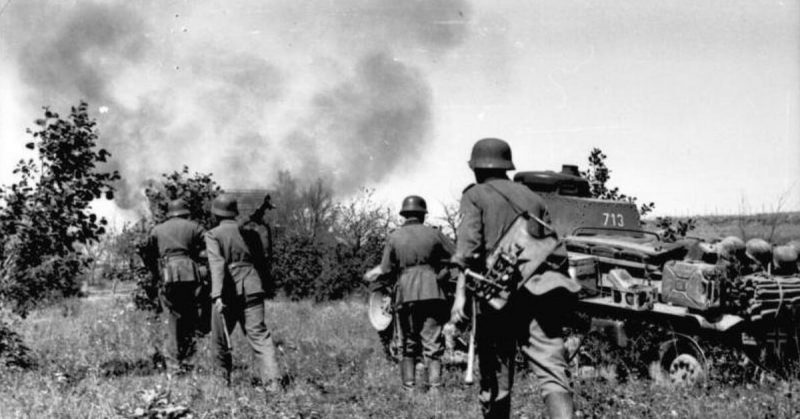WWII was the most destructive event in human history. To face such a challenge, soldiers, and politicians from different nations needed to come together. Only by overcoming their animosities could they defeat the forces massed against them.
In reality, WWII was filled with backbiting, infighting, and more petty feuds than an episode of The Jerry Springer Show.
Germany Turns on Russia
One of them was a Commie-hating Nazi. The other was a Nazi-hating Commie. However, when the opportunity of a lifetime appeared, these two unlikely people joined to partition Poland.
The alliance between Hitler’s Germany and Stalin’s Russia was always a strange one. The Nazi ideology Hitler had invented was built upon hatred of groups he blamed for Germany’s misfortunes. The Communists were among them.
Having agreed to separate spheres of influence in the Molotov-Ribbentrop Pact of 1939, these two superpowers split Poland between them. Amicable relations seemed to have been achieved.
Hitler, however, was as dedicated to conquering land for Germany as he was to crushing Communism. In June 1941, he betrayed the Soviets, invading them in Operation Barbarossa.
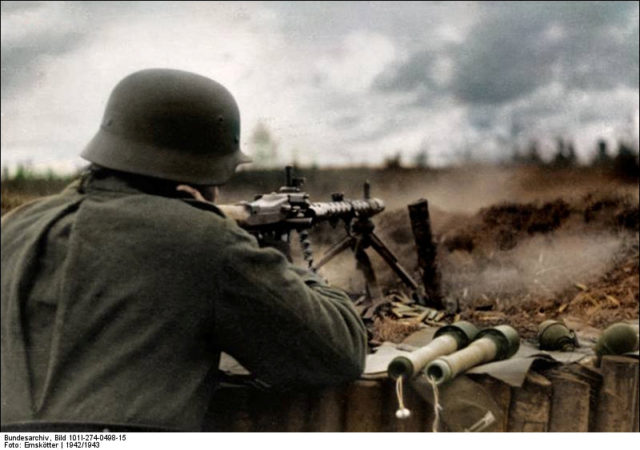
The British and the Americans in North Africa
When American forces landed in North Africa in November 1942, they expected to fight the Germans and Italians. What they did not expect to do was also fight the British.
The problems began during a long, uncomfortable winter, during which rain and mud stalled combat and strained supply lines. Bar room brawls broke out between British and American troops. Senior officers argued bitterly, forcing Eisenhower to stamp down on anti-British feelings among his commanders.
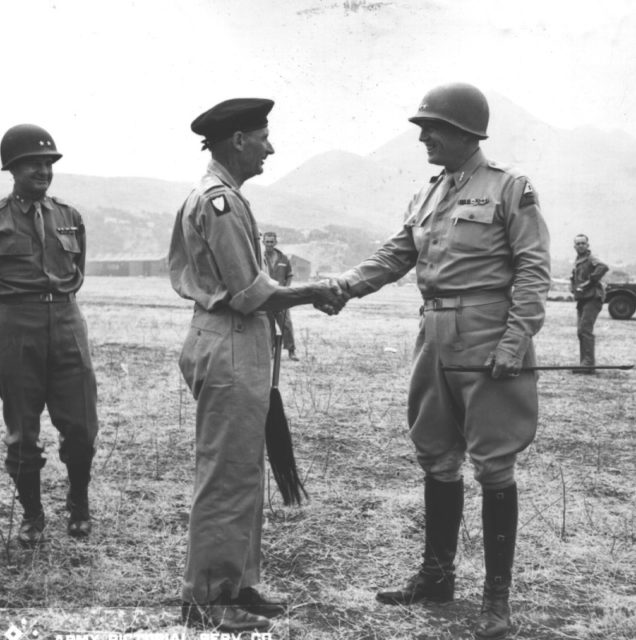
They had very different outlooks. The British, who had been fighting in North Africa since 1940, saw the untested Americans as brash, boastful, and inexperienced. The Americans, seeing themselves as rescuers, found the British cold, patronizing, and ungrateful.
It was a falling out which became embodied in the hostility between Generals Patton and Montgomery, a rivalry which they carried to the war in Europe.
Guderian and Hitler
Heinz Guderian was one of the great German commanders of the war. He was also one of the few men who could stand up to Hitler.
Following the fall of Poland, Guderian voiced concerns that an invasion of France would be a mistake. Then, following the failed invasion of Russia, he tried to talk Hitler out of continuing the offensive there; leading to his dismissal in December 1941. Returning later in the war, he futilely suggested that the Fuhrer give the overall command of the military to an experienced general.
From the beginning of the war to its end, Guderian repeatedly argued with the Fuhrer, yet somehow survived. Despite it all, he resisted attempts to draw him into plots against Hitler.
In March 1945, the two men had their last bitter row. Guderian went on sick leave, then joined a Panzer unit before being captured by the Americans.
Wingate and the British Establishment
Orde Wingate was one of the most controversial figures of the war. He was an innovator in unconventional warfare, but his legacy was divisive in post-war Britain, where some saw him as brilliant and others as a screaming liability.
Wingate came from a deeply religious family. His defiantly non-conformist outlook was at odds with the British military establishment, which was dominated by conservatism, conformity, and upper-class tradition.
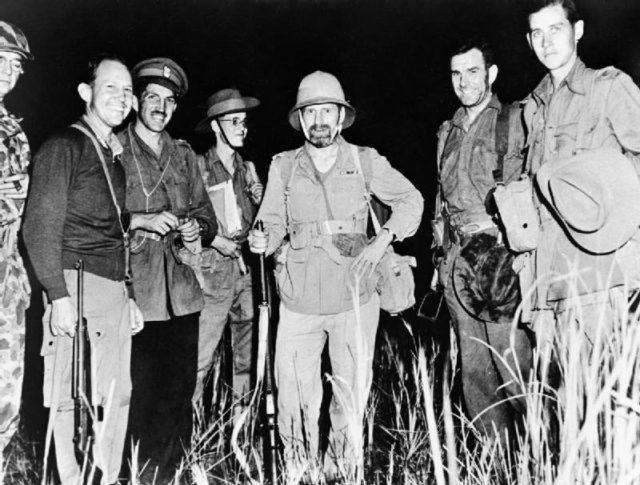
Wingate worked around the chain of command to get his way, upsetting those he circumvented. In boldly suggesting new tactics for the war in Burma, he cast a negative light on the work of others. He refused to bow to social conventions.
His efforts were continually held back by obstruction from other officers. His success was achieved despite his personality as much as because of it.
Stilwell, Chiang, and the Limeys
Burma was also the scene of another great conflict between the Allies. It was the long-running three-way dispute between American General “Vinegar Joe” Stilwell, Chinese General Chiang Kai-Shek, and the British command.
Stilwell was a tough character with no patience for inefficiency. A born soldier, he was forced to play the politician, persuading Chiang to cooperate.
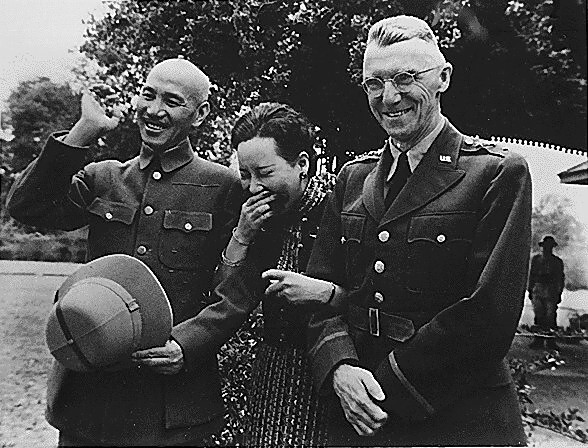
Chiang, however, had his own agenda. He made constant demands of supplies from the Americans, then did not give them the support he had promised in exchange. It made Stilwell livid.
Stilwell had developed a deep prejudice against the British. He placed no trust in the stuck-up “Limeys.” His determination to out-do them led to a disastrously costly attack on Myitkyina which left both British and American commando units furious at their commander.
Italy Turns on Germany
Two years after Germany had betrayed Russia, karma came around to bite the Reich.
By October 1943, the Allied invasion of Italy had led to a change of government. Although much of the country was still in Axis hands and contained German troops, the new administration decided it was time to switch sides. On October 13, Italy declared war on Germany.
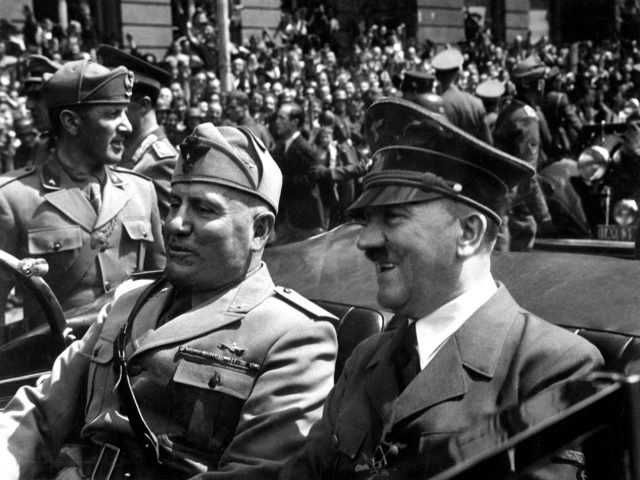
Germany had been preparing for it. German support in northern Italy became an occupation. Mussolini, recently rescued from an Italian prison by German commandoes, remained a figurehead for Italy as an Axis power. However, Germany’s staunchest supporter was now an opponent.
Patton and the Russians
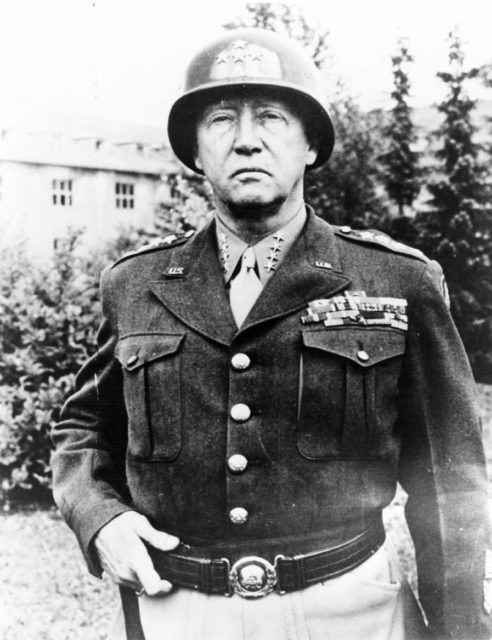
General Patton, a veteran of the Anglo-American clash in North Africa, still had one more fight in him as the war ended.
The Americans and Russians linked up in Germany, and Patton was invited by Russia officers to a dinner to celebrate. At the dinner, a Russian general paid tribute to Patton and invited him to join in drinking a toast. Deeply suspicious of Russia and communism, Patton refused to drink with “any Russian son of a bitch.” The Russian replied like for like.
When the story appeared in the press, it became an international incident. Good relations between America and Russia were crucial in creating a post-war settlement. Patton, having begun the Cold War early, was relieved of his command.
Sources:
Nigel Cawthorne (2004), Turning the Tide: Decisive Battles of the Second World War.
David Rooney (1999), Military Mavericks: Extraordinary Men of Battle.
